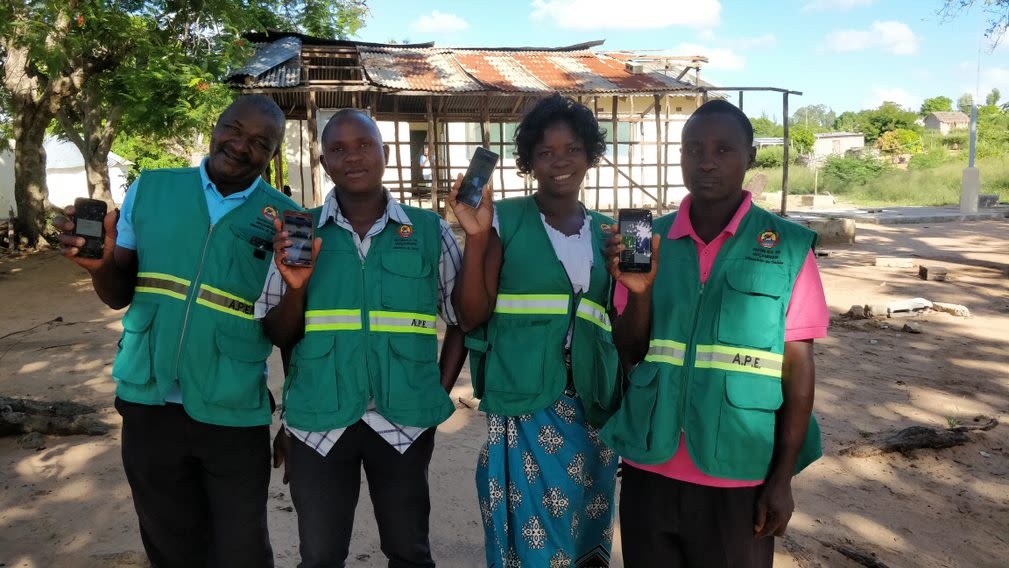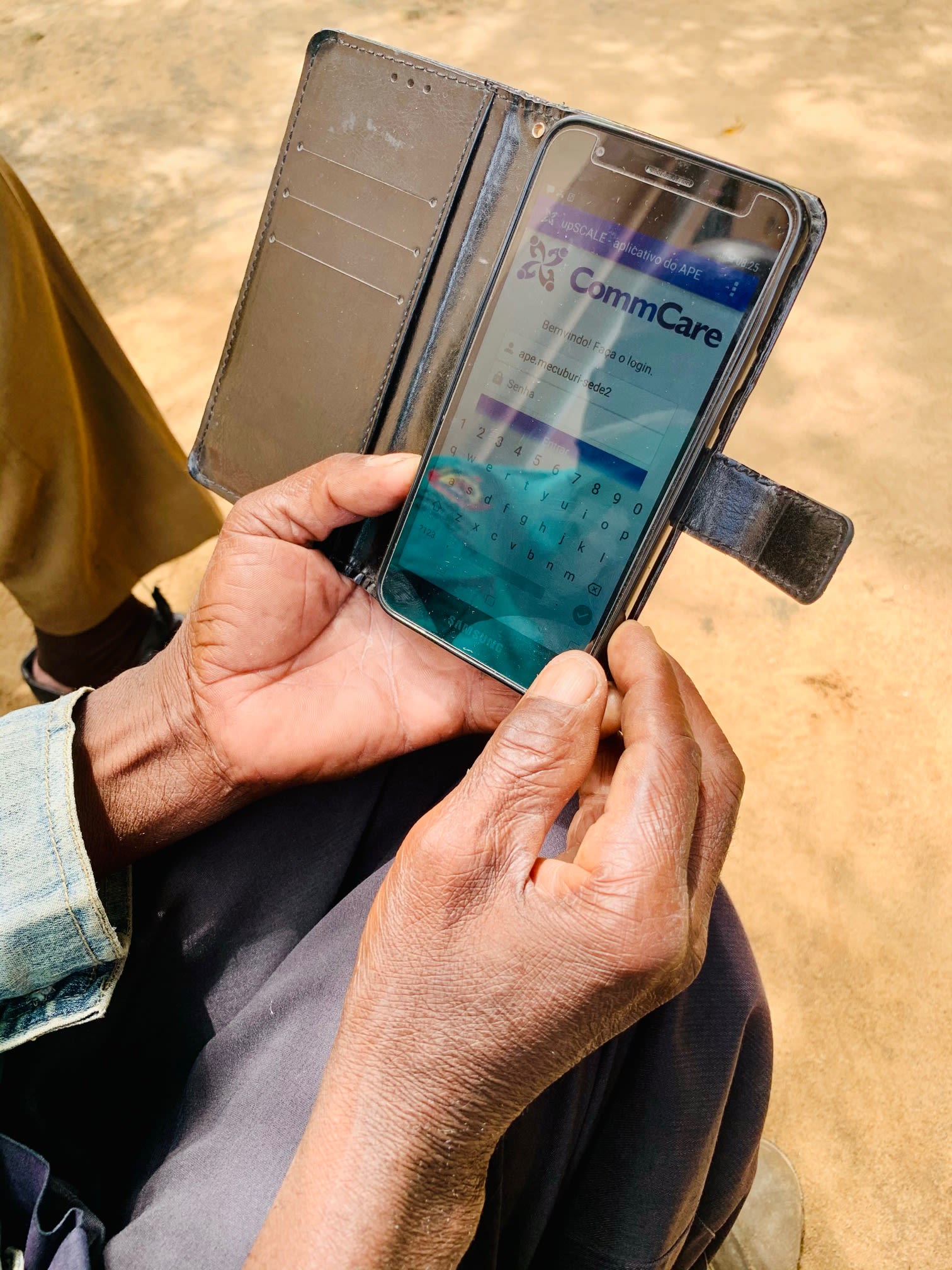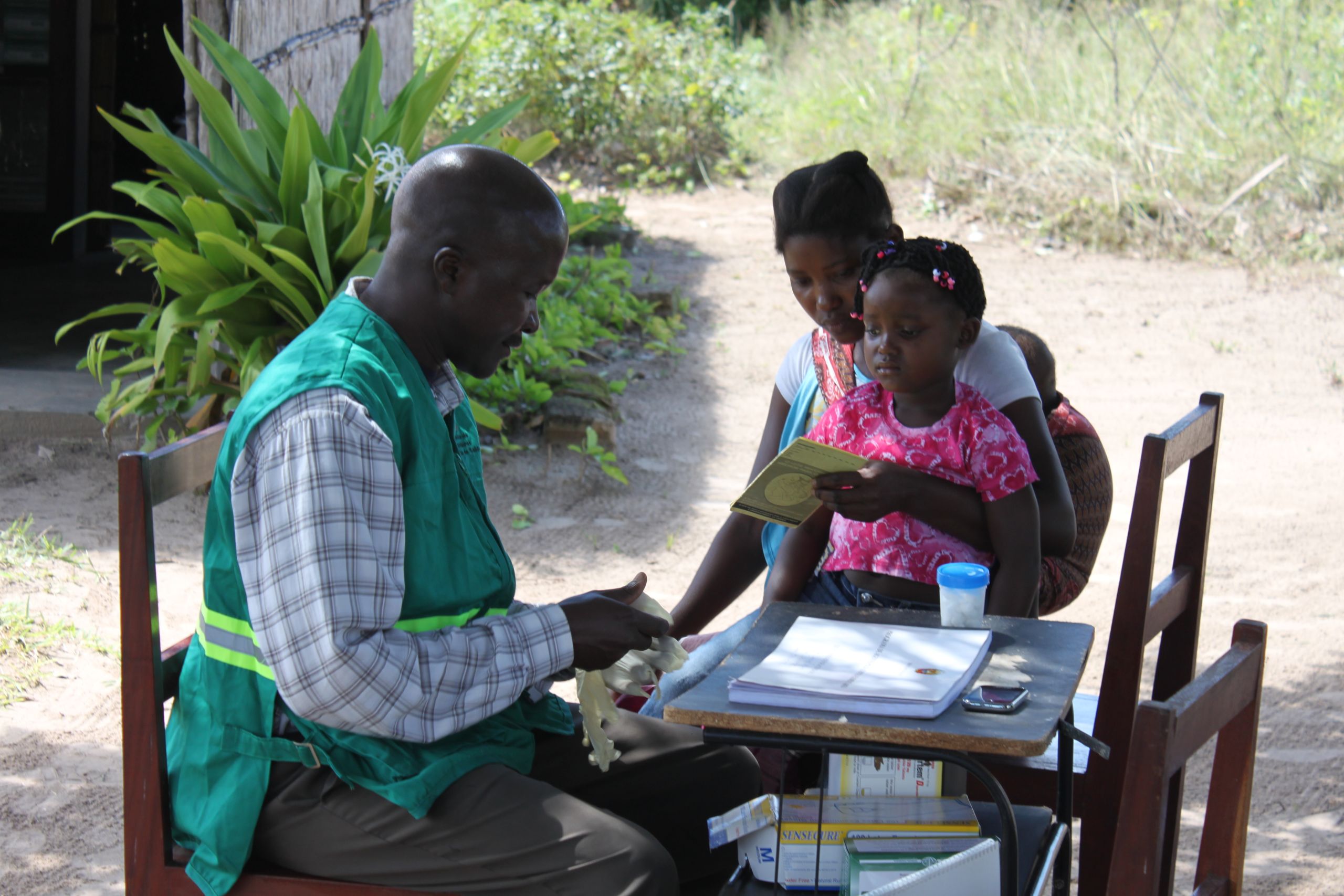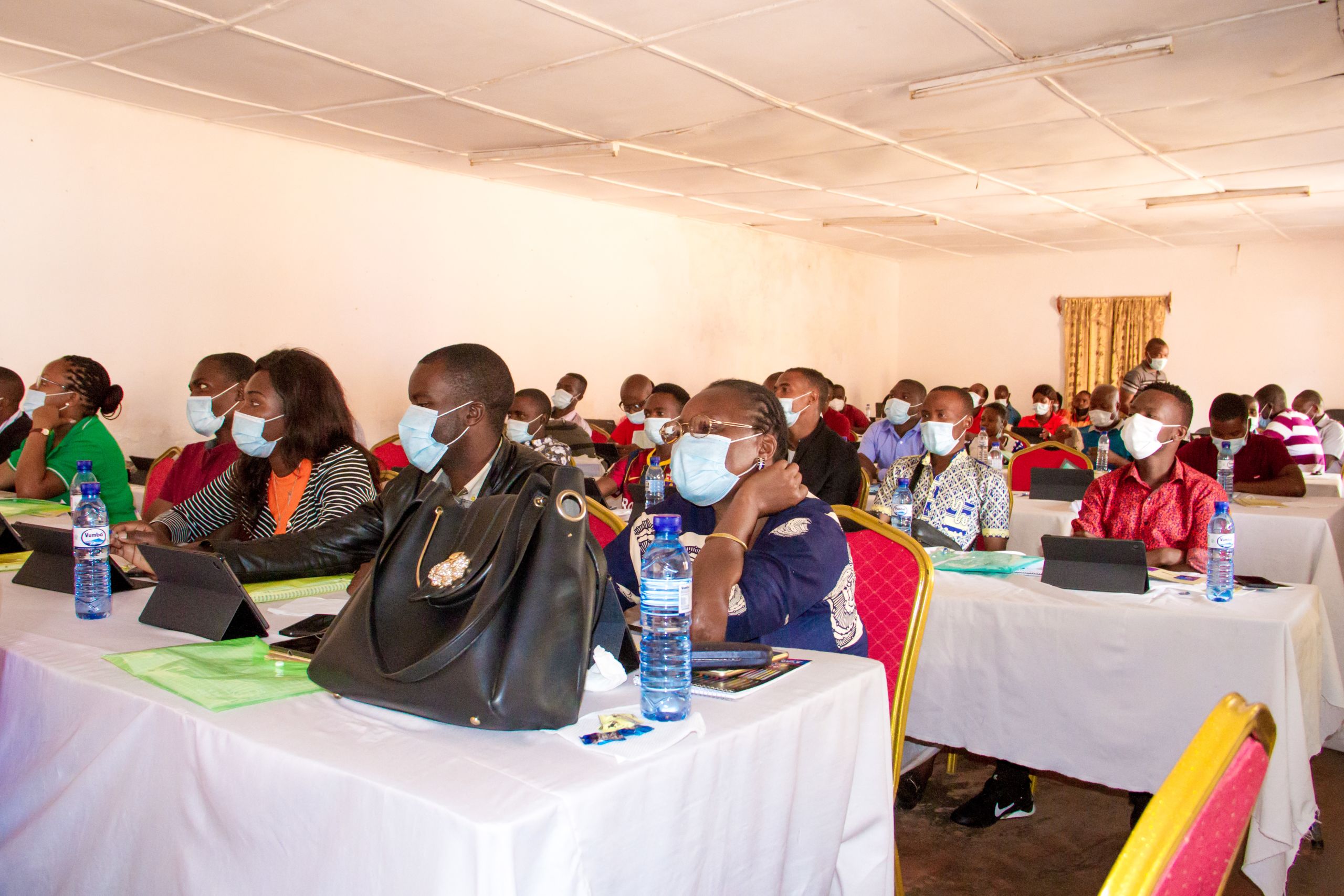Building a strong malaria surveillance system in Mozambique

Over the last decade, Mozambique has intensified its malaria control and elimination activities. To reach a malaria-free future, Mozambique can now build on data-driven interventions to combat malaria morbidity and mortality.
When the Ministry of Health wanted to introduce a new community health platform with the aim of combining multiple systems already in use, Malaria Consortium and partners developed the digital platform upSCALE which launched in 2016 and rolled out country-wide in 2019 – the first of its kind on this scale.
In practice, a smartphone and tablet app assists CHWs with patient registration, diagnosis and advice on treatment and referrals. It also allows supervisors to monitor CHWs performance and stock levels of drugs and equipment. Data entered through the app is captured in the District Health Information System (DHIS) at district, provincial and national level and the ability to analyse local disease-specific trends in near real-time improves resource allocation.
upSCALE has proved to be hugely successful in helping to overcome limited access to primary healthcare for rural populations and poor linkages between community health workers and the national health information system. The platform has supported the provision of healthcare services to 29,402 children under five years and to 3,110 pregnant women. In total, 106,816 consultations in communities took place with direct support of the programme.
With upSCALE, the Ministry of Health are able to visualise data in real time at the district, provincial and national levels of Mozambique’s health system. As a result, the Ministry of Health can now view community data in a user-friendly format, supporting data-driven decision making around programme investments, surveillance and national health outcomes. The platform has allowed the Ministry of Health to create a national dashboard made of community-level data sets which informs the effective management of malaria cases.
Mozambique can build on the success of systems like upSCALE to tackle persisting areas of malaria transmission which is still high in the country. In 2019, Mozambique was the fourth largest contributor globally to the 229 million new malaria cases reported. The Ministry of Health is focusing on building a strong and responsive surveillance system to support and enhance existing malaria systems.



Malaria surveillance provides tailored information for data-driven decisions on disease control. With surveillance methods, governments can collect real-time evidence to tackle bottlenecks in malaria control and target interventions more efficiently. A malaria surveillance system is considered functional and responsive when it can produce evidence-based information from quality data that is routinely used for planning and decision making.
Identifying where malaria cases are and targeting these quickly is key to eliminating the disease; data gathered through surveillance is an effective way to support interventions. In collaboration with the Ministry of Health, Malaria Consortium is running the three-year project, Strengthening Malaria Surveillance for Data-driven Decision-Making in Mozambique, funded by the Bill and Melinda Gates Foundation, with the aim to increase data quality, data use and data-to-action. As part of the project, we are also working to establish an integrated malaria information storage system (iMISS) at district and health facility levels.
During the first year of implementing the current project, we have carried out several core surveillance-strengthening activities. Between May 2019 and May 2020, we distributed 16,389 registers for data collection to all health facilities in the country. We also produced a data quality audit manual and toolkit and trained trainers at the national and provincial levels, who in turn trained district and health facility level staff.
We facilitated 203 data quality audit visits to health facilities in 24 districts and enhanced coordination between national, provincial and district levels by developing guidelines for data-informed discussions and establishing surveillance coordination mechanisms. We also initiated an in-depth analysis of existing social and behaviour change (SBC) tools to inform the design of a comprehensive SBC strategy that will address health personnel’s data use behaviours for the remainder of the project.


“We realised that there was more to do in terms of building a surveillance system for understanding the malaria landscape in our country and have had the opportunity to work with donors and partners to do this. We took lessons from earlier work and realised we could not implement iMISS in only one or two provinces or region, to be fully effective it would need to be introduced across the whole country. The Ministry of Health is playing their part in this and we have seen progress. People are becoming more familiar with the iMISS data form and DHIS2 and now we are ready for Phase 2 of the project, which is related to data analysis and data for decisions. So far, so good and we can see that people are excited to talk about data and I can tell you that our data is now more comprehensive than in past years.”
Dr Baltazar Candrinho, Director of Mozambique National Malaria Control Programme.
Combining flexible interventions and data-driven systems will support Mozambique on its way to malaria elimination.

